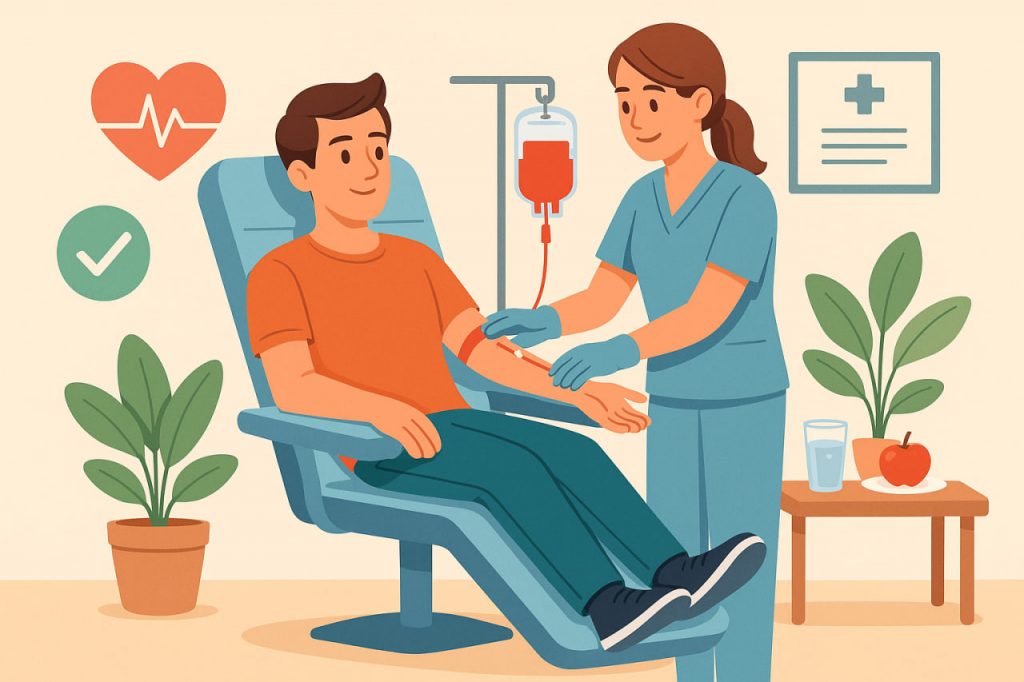Blood donation is one of the most impactful ways to help save lives. Every day, people need blood due to surgeries, accidents, cancer treatments, or chronic conditions like anemia. Being a responsible blood donor requires more than just showing up—it involves preparation, knowledge of your health, and post-donation care. A single donation can help up to three people, making it a small act with huge consequences. Yet not everyone is eligible to donate, and proper behavior before and after the procedure can make a big difference. Learning how to be a good donor ensures the process is safe for both the donor and the recipient.
Before You Donate: Preparation and Eligibility
Good preparation starts days before the donation. It’s essential to stay well-hydrated, eat iron-rich foods, and get enough rest. Exclude alcohol and avoid heavy fatty meals the day before giving blood. Bring an ID and be honest when filling out the health questionnaire—conditions like low hemoglobin, infections, or recent travel may temporarily disqualify you. Only adults over a certain weight (usually 50 kg or 110 lbs) and in good health are eligible. If you’ve recently had a piercing, tattoo, or vaccination, check the deferral period. Preparing your body ahead of time reduces the risk of dizziness or nausea during donation.
During Donation: Stay Calm and Informed
The donation process usually takes 8–10 minutes, though the full appointment may last around an hour. Blood is drawn from a vein in your arm, and you’ll be monitored throughout. Wear comfortable clothing with sleeves that can be rolled up. Try to stay relaxed, breathe normally, and let the staff know if you feel unwell. Some people feel faint or nervous, but staff are trained to assist immediately. Remember, you’re donating about 450 ml (one pint) of blood, which your body replaces in a short time. You may also be asked whether you’d like to give plasma or platelets, which follow similar but slightly longer procedures.
After Donation: Recovery and Continued Support
Post-donation care is just as important as the donation itself. Sit or lie down for a few minutes and have a snack and water offered by the clinic. Exclude alcohol. Avoid strenuous activity, or hot showers for the next 24 hours. Continue drinking fluids and eat well to support blood regeneration. If you feel faint later in the day, lie down with your legs elevated. You can donate whole blood every 8 weeks, but plasma and platelets can be donated more frequently. Becoming a regular donor is one of the best ways to support your local health system and help ensure a stable blood supply.
Glossary
- Blood donation – the process of voluntarily giving blood for medical use.
- Hemoglobin – a protein in red blood cells that carries oxygen.
- Plasma – the liquid part of blood that carries cells and proteins.
- Platelets – small blood components that help with clotting.
- Blood regeneration – the natural process of replacing donated blood over time.
- Eligibility – the health and lifestyle criteria that determine if someone can safely donate.


